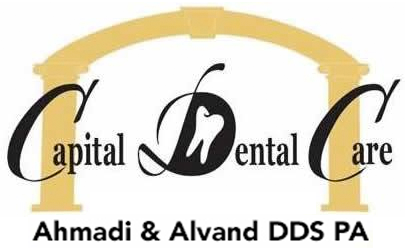I have been advised and understand that treatment of dental conditions requiring crowns an/or fixed bridgework involves risks and possible unsuccessful results, including the possibility of failure. Even when care and diligence are exercised in the treatment of conditions requiring crowns and bridgework and the fabrication of, there are still NO guarantees in the results or the longevity of the crown and/or the fixed bridgework. I agree to assume the risks associated with crowns and/or fixed bridgework, which include but are not limited to the following:
- Reduction of tooth structure
To replace decayed or otherwise compromised teeth, it is necessary to modify the existing tooth or teeth so that the crowns and/or bridges may be placed upon them. Tooth preparation will be done as conservatively as possible, but I understand that existing tooth structure will be removed.
- Numbness following use of anesthesia
In preparation of teeth for crowns or bridges, anesthetics are usually needed. As a result of the injection or use of anesthesia, at times there may be swelling, jaw muscle tenderness or even a resultant numbness of the tongue, lips, teeth, jaws and/or facial tissues that is usually temporary. In rare instances, such as numbness may be permanent.
- Sensitivity & Discomfort
Often, after the preparation of teeth for crowns or bridges, the teeth may exhibit mild to severe sensitivity. This sensitivity usually lasts only a short period of time. Crowns and bridges are artificial and therefore feel different from natural teeth. Most patients become accustomed to this feeling over time. If sensitivity persists, please notify us so that we can determine the cause and seek to treat that issue.
- Crown or bridge abutment teeth may require root canal treatment
After being crowned, teeth may develop a condition known as pulpltis or pulpal degeneration. This condition may be due from trauma from an accident, deep decay, extensive preparation for the crown or bridge, or other causes. It may be necessary to perform root canal therapy on the affected teeth. If teeth remain sensitive for extended periods of time following crown or bridge placement, root canal treatment may be necessary.
- Breakage
Occasionally, the material used to fabricate crowns and bridges may chip or break over time. Many factors can contribute to this, including heavy biting forces, traumatic blows, etc.
- Aesthetics or appearance
Patients will be given the opportunity to observe and request changes to the appearance of crowns or bridges, prior to final cementation. I understand that matching the color of natural teeth exactly is not possible. After permanent placement/cementation NO changes can be made. Over time, it is possible that a dark line may appear at the gum line (metal exposure). This is due to natural gum recession. If this occurs, the crown may need to be replaced.
- Longevity of crowns and bridges
Many variables determine how long crowns and bridges can be expected to last. Among these are some of the factors mentioned in the preceding paragraphs, including the general health of the patient, oral hygiene, regular dental checkups and diet. As a result, no guarantees can be made regarding the longevity of crowns and bridges. As with natural teeth, crowns and bridges need to be kept clean and meticulous homecare is vital to prevent recurrent decay and ultimately failure of the prosthesis.
It is a patient’s responsibility to seek attention from the dentist should any undue or unexpected problems occur. The patient must diligently follow any and all instruction, including the scheduling of and attendance at all appointments. Crown and bridgework should be completed within one month. Failure to keep appointments, especially final cementation, may result in ultimate failure of the crown/bridge to fit properly, with this, the prosthesis may need to be re-fabricated and additional fees will be accrued at your expense.
Informed Consent
I have been given the opportunity to ask questions regarding the nature and purpose of crowns and/or bridge treatment, and have received answers to my satisfaction. I voluntarily accept any and all risks, including those listed above.
By signing this document, I am freely giving my consent to allow and authorize Dr.
to render any treatment necessary and/or advisable to my dental conditions.
Signature of patient or legal guardian:

